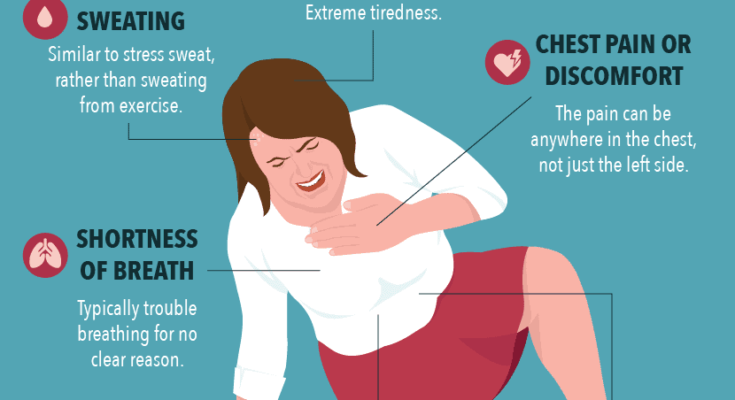Sweating during a workout is totally normal—it’s just your body’s way of cooling itself down. But what if you start sweating a lot more than usual? It can be a bit alarming, and it’s natural to wonder: Could this be a sign of something more serious, like heart disease?
The good news is, most of the time, excessive sweating is just a sign that your body is working hard—especially during intense exercise or in a warm environment. But it’s also smart to be aware of the signs that could point to an underlying heart issue.
So, how do you know when to be concerned? In this blog, we’ll dive into the link between sweating and heart health. We’ll look at the difference between normal and concerning sweat, what other symptoms to watch for, and when it’s time to talk to your doctor.
Understanding your body’s signals can help you stay safe, healthy, and confident in your workouts. Let’s take a closer look so you can keep moving forward—worry-free.

Causes Of Excessive Sweating
Excessive sweating during exercise can be worrying. But it is not always a sign of heart disease. Sweating is a natural response to physical activity. But sometimes, it can indicate other issues.
Normal Physiological Response
When we exercise, our body heats up. Sweating is how our body cools down. It’s a natural and necessary process. If you sweat a lot, it could mean your body is very efficient at cooling itself.
Factors like temperature, humidity, and fitness level affect sweating. Athletes often sweat more because their bodies are trained to cool down quickly. This is a normal physiological response.
Health Conditions
Excessive sweating can also be linked to health conditions. One such condition is hyperhidrosis. This is where the body sweats more than necessary. It’s not always linked to heart disease but can be uncomfortable.
Other conditions include diabetes, thyroid issues, and infections. These can all cause increased sweating. It’s important to see a doctor if you have concerns.
| Condition | Symptoms |
|---|---|
| Hyperhidrosis | Excessive sweating even without exercise. |
| Diabetes | Sweating, especially at night. |
| Thyroid Issues | Increased sweating, weight changes. |
| Infections | Fever and sweating. |
Remember, sweating during exercise is usually normal. But if you have other symptoms, seek medical advice. Understanding the causes can help you manage your health better.
Heart Disease And Sweating
Excessive sweating during exercise can be concerning. Many wonder if it indicates heart disease. This blog explores the link between sweating and heart health. Understanding these signs is crucial for everyone.
Symptoms Of Heart Disease
Heart disease symptoms can vary. Common signs include:
- Chest pain or discomfort
- Shortness of breath
- Fatigue
- Swelling in legs, ankles, or feet
- Irregular heartbeat
These symptoms are vital to recognize. Early detection is key to treatment.
How Sweating Relates
Not all sweating is linked to heart disease. During exercise, sweating is normal. It helps cool the body. But, excessive sweating might signal an issue.
Excessive sweating without a clear cause can be a red flag. It may indicate poor heart function. The body works harder to maintain balance. This can lead to more sweat.
Other factors to consider include:
- Overall fitness level
- Temperature and humidity
- Hydration status
Always consult a doctor if you have concerns. Understanding your body is essential for health.
| Normal Sweating | Excessive Sweating |
|---|---|
| During exercise | Occurs at rest |
| In hot weather | Without clear cause |
| Stops after cooling down | Continues excessively |
When To Worry
Excessive sweating during exercise is common. It’s the body’s way of cooling down. But sometimes, sweating can signal a problem. Knowing when to worry is important for your health.
Warning Signs
Not all sweating is a cause for concern. But certain signs can indicate trouble:
- Chest pain or tightness
- Shortness of breath
- Dizziness or lightheadedness
- Swelling in the legs, feet, or ankles
- Irregular or rapid heartbeat
If you experience any of these symptoms, seek help. These could be signs of heart disease.
Seeking Medical Advice
If you’re unsure about your symptoms, consult a doctor. A medical professional can assess your condition. Here’s what to expect:
| Step | What Happens |
|---|---|
| Initial Consultation | The doctor will ask about your symptoms and medical history. |
| Physical Examination | The doctor will check your heart and lungs. |
| Tests | You may undergo blood tests, ECG, or other heart-related tests. |
| Follow-Up | The doctor will discuss the results and suggest treatments if needed. |
Don’t ignore excessive sweating if it comes with other symptoms. Early detection can prevent serious issues.
Other Factors
Excessive sweating during exercise may be a concern for many. While it can sometimes indicate heart issues, there are other factors to consider. Understanding these factors can help you determine the cause of excessive sweating.
Genetics
Genetics plays a significant role in how much you sweat. Some people naturally sweat more due to their genetic makeup. If your parents or siblings sweat a lot, you might too. This does not necessarily indicate a health problem.
Your body’s sweat glands could be more active. This is a hereditary trait. So, if you come from a family of heavy sweaters, you might sweat more during exercise. This is normal and not a sign of heart disease.
Environment
The environment can also affect how much you sweat. Exercising in a hot and humid climate can increase sweating. Your body sweats more to cool itself down in such conditions.
Wearing heavy or non-breathable clothing during exercise can also lead to more sweat. These factors are external and do not relate to your heart health.
Consider the temperature and humidity levels when assessing your sweat levels. If you are working out in a hot environment, expect more sweat. This is your body’s way of maintaining a normal temperature.
Remember to stay hydrated if you sweat a lot. Drink water before, during, and after exercise. This helps your body function properly and keeps you healthy.
| Factor | Impact on Sweating |
|---|---|
| Genetics | Increases if family has active sweat glands |
| Environment | Increases in hot and humid conditions |
Managing Excessive Sweating
Excessive sweating during exercise can be uncomfortable and embarrassing. It can also raise concerns about underlying health issues. While it is not always a sign of heart disease, managing excessive sweating can improve your quality of life. Here are some ways to manage this condition:
Lifestyle Changes
Making simple lifestyle changes can help reduce excessive sweating. Here are some tips:
- Stay Hydrated: Drink plenty of water before, during, and after exercise.
- Wear Breathable Clothing: Choose clothes made of moisture-wicking fabrics.
- Avoid Spicy Foods: Spicy foods can increase sweating.
- Use Antiperspirants: Apply a strong antiperspirant before your workout.
These changes can help manage sweating and make exercise more enjoyable.
Medical Treatments
If lifestyle changes are not enough, medical treatments can help. Here are some options:
- Prescription Antiperspirants: Stronger than over-the-counter options.
- Botox Injections: Blocks the nerves that cause sweating.
- Medications: Some medications can reduce sweating.
- Surgery: In severe cases, surgery may be an option.
Consult with a doctor to find the best treatment for your condition.
Exercise And Heart Health
Exercise is crucial for maintaining a healthy heart. It strengthens the heart muscle, improves blood circulation, and helps control weight. Regular physical activity can reduce the risk of heart disease. But is excessive sweating during exercise a warning sign? Let’s explore this topic further.
Benefits Of Regular Exercise
- Improves cardiovascular health: Exercise helps the heart pump more efficiently.
- Reduces blood pressure: Regular activity keeps blood pressure in check.
- Controls weight: Exercise burns calories and helps maintain a healthy weight.
- Boosts mental health: Physical activity releases endorphins, reducing stress and anxiety.
These benefits highlight the importance of incorporating exercise into your daily routine. A healthy heart means a healthier life.
Safe Workout Tips
- Start slow: Gradually increase the intensity of your workouts.
- Stay hydrated: Drink water before, during, and after exercise.
- Listen to your body: Stop if you feel dizzy, lightheaded, or short of breath.
- Wear comfortable clothes: Choose breathable, moisture-wicking fabrics.
- Warm-up and cool down: Spend 5-10 minutes warming up and cooling down.
By following these tips, you can enjoy the benefits of exercise without putting undue strain on your heart.
Frequently Asked Questions
Does Excessive Sweating Indicate Heart Issues?
Excessive sweating during exercise doesn’t always indicate heart issues. It’s often due to factors like fitness level, temperature, and humidity. However, if accompanied by chest pain or shortness of breath, consult a doctor.
Is Sweating During Exercise Normal?
Yes, sweating during exercise is normal. It helps regulate body temperature. The amount varies based on fitness level, intensity, and environment.
When Should I Worry About Sweating?
Worry about sweating if it’s excessive and accompanied by symptoms like chest pain, dizziness, or shortness of breath. Consult a healthcare professional.
Can Dehydration Cause Excessive Sweating?
Yes, dehydration can cause excessive sweating. When your body lacks fluids, it tries to cool down by sweating more. Stay hydrated during exercise.
Conclusion
Excessive sweating during exercise can be normal. It often depends on various factors. High temperatures, intense workouts, and personal sweat rates play a role. If sweating feels unusual, consult a doctor. Rule out any health concerns. Regular check-ups keep you informed and healthy.
Exercise is vital, so understanding your body helps. Stay hydrated and listen to your body. Healthy habits lead to better exercise experiences.



